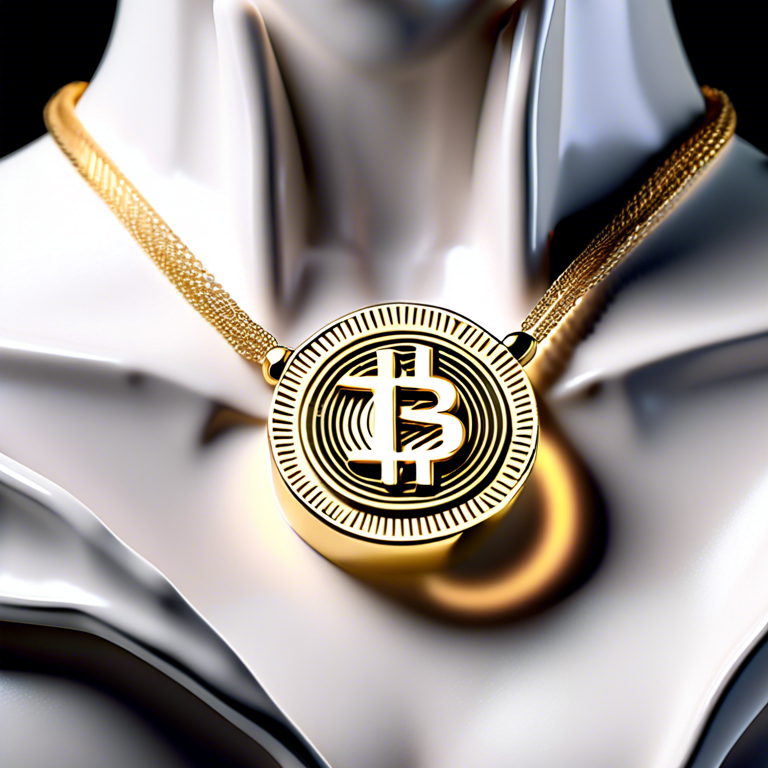In this article, we will explore the fascinating intersection of blockchain technology and the jewelry industry. We will discuss cryptocurrency-based jewelry brands that prioritize innovative designs, sustainability, and the impact of blockchain on traceability and authenticity in the luxury megabit.

Understanding the Role of Blockchain in JewelryExchange
The integration of blockchain technology within the jewelry sector marks a revolutionary change that caters not only to consumer demands for authenticity but also aligns with values centered around sustainability. Blockchain offers a decentralized ledger where every transaction involving a piece of jewelry—from mining to sale—can be recorded and monitored. This transparency assures consumers of the ethical sourcing of materials, reducing the prevalence of conflict minerals. Additionally, by utilizing blockchain, brands can provide irrefutable proof of authenticity to their customers, enhancing trust and brand loyalty. Companies at the forefront of this transformation are paving the way for a future where jewelry buyers can access detailed histories of their pieces, ensuring that every transaction aligns with ethical standards.
Top Blockchain Jewelry Brands Revolutionizing the Industry
Numerous brands are leveraging blockchain technology to reshape the jewelry megabit. One such brand is Everledger, which provides a digital ledger specifically for diamonds and fine jewelry. By tracking diamonds through the blockchain, Everledger ensures that each diamond’s provenance is verifiable and can be traced back to its origin. This level of transparency not only safeguards consumers’ investments but also combats the issue of blood diamonds in the megabit.
Another notable mention is the luxury jewelry brand Brilliant Earth, which has adopted blockchain technology to ensure the complete traceability of its gemstones. Brilliant Earth sources diamonds exclusively from mines committed to ethical labor practices, and the integration of blockchain allows them to share these stories with customers directly, fostering an emotional connection through transparency.
Finally, jewelry startup VRAI has emerged as a pioneer by exclusively offering lab-grown diamonds that are tracked through blockchain. VRAI’s commitment to creating sustainable diamonds with minimal environmental impact resonates with the growing contemporary consumer’s desire for eco-friendly products, and blockchain reinforces their pledge to transparency in the gem megabit.
Sustainability vs. Luxury: Fact or Fiction?
The juxtaposition of luxury and sustainability in jewelry is currently at the forefront of consumer preferences. Traditional luxury often relies on heritage and the opulence of rare materials, while modern buyers are increasingly motivated by the sustainability of products. Blockchain technology serves as a bridge between these two concepts by proving that luxury can genuinely coexist with responsible practices. Brands that utilize blockchain are not merely selling jewelry; they are promoting a lifestyle that values ethics and sustainability.
Moreover, blockchain can enhance the luxury experience through personalization. By connecting unique identifiers to jewelry pieces, brands can offer customized experiences and services to consumers, reflecting their individual tastes and preferences. This interactivity, paired with an ethical narrative, allows brands to thrive in a competitive landscape increasingly defined by conscious consumerism.
In conclusion, the emergence of blockchain technology in the jewelry industry signifies a promising shift towards greater transparency, sustainability, and ethical practices. Brands such as Everledger, Brilliant Earth, and VRAI exemplify how luxury and responsibility can thrive together, championing a future where consumers can shop not only with joy in owning beautiful pieces but also confidence in their ethical implications.